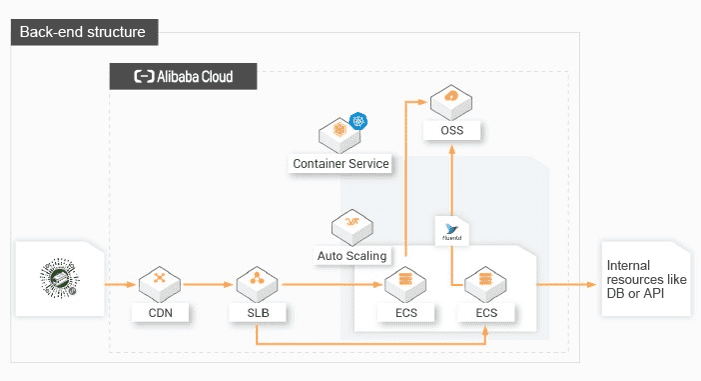
Featured Products
01
About NAVITIME
NAVITIME was established in March 2000 under the management philosophy of "serving the world's industries with route-search engine technology". NAVITIME has developed a variety of transportation-related businesses based on NAVITIME’s "total navigation" technology, which combines various means of transportation such as trains, airplanes, cars, buses, and walking. NAVITIME inbound business provides "Japan Travel by NAVITIME", a multilingual sightseeing and navigation app for foreigners visiting Japan, and NAVITIME also works with local governments to create tourism content, implement measures to attract customers, and analyze the actions of foreign visitors to Japan.
On June 6, 2019, NAVITIME launched a transit information service "Transit NAVITIME" for Chinese tourists visiting Japan. Using this service, tourists can easily search for routes to their destinations as a mini-program running inside familiar mobile apps used China. This mini program was the first-ever mini program specializing in transit information of Japan, and it has been well received by tourists visiting Japan.
02Challenge
• Stable and fast service: In China, mobile apps are difficult to distribute alone. Thus, NAVITIME considered providing services through mini programs which were to be provided within mobile apps such as Alipay. However, if NAVITIME builds a service based on the assumption that it will be used in China, the data transfer speed will decrease when users visit Japan. On other hand, if NAVITIME builds a service based on the assumption that it will be used in Japan, the data transfer speed may become unstable or slow in China.
• Compliance with privacy protection laws and regulations in China: In order to comply with China's Personal Information Protection Law, personal information acquired in China has to be stored in China. For this reason, NAVITIME needed to get advice and support from service providers who were knowledgeable about the Chinese compliance system.
• Short-term system development: In order to release the service on the desired date, NAVITIME had to deploy the service to the cloud within a short period of time.
03Solution
With a CDN that seamlessly provides content on the Alibaba Cloud network—which provides a stable and high-speed connection between Japan and China—services without interruption can be provided even when access is heavy, allowing users to access from anywhere: prior to departure, while in Japan, when returning to China, etc.
ACK (Container Services for Kubernetes) It is a fully managed container management service compatible with Kubernetes. Rather than deploying applications directly to virtual machine servers, NAVITIME decided to use a Kubernetes-based container service which NAVITIME had experience using internally.
DataV
It is a high-performance real-time data visualization service including visualization functions that combine various graph patterns and maps. It is used as a dashboard for monitoring log data.
OSS (Object Storage Service)
It is an object storage service that can store, back up, and archive large amount of data. NAVITIME stored all access logs in the OSS, and NAVITIME took measures to make sure personal information would not leave the region. NAVITIME used fluentd, an open source product, to output access logs from containers
CDN (Content Delivery Network)
It is a content delivery acceleration service for delivering content to users around the world through the Internet. A CDN is used to provide high-speed access to content regardless of the user's location— in China before visiting, in Japan while visiting, etc.
SLB (Server Load Balancer)
It is a load balancer that provides scalability and high availability for applications as well as websites.
ROS (Resource Orchestration Service)
It is a service that streamlines the creation and management of Alibaba Cloud resources.
04Looking forward
In just two weeks after the product was introduced, the system transition was completed and new services were released as scheduled. Up to now, customers have been using the service stably at a high speed regardless of where they are located, whether it be Japan or China. The data visualization tool introduced for monitoring access logs is a high performance tool with more graph patterns than expected, and it contributed to visualizing data.
Looking forward, NAVITIME is continuing to collaborate with Alibaba to better serve its customers.
Improving real-time data access
In the current system, the data source of the dashboard built with DataV uses OSS. However, NAVITIME wants to change to ApsaraDB for RDS in order to improve real-time data access.
Streamlining the ETL process
Currently, NAVITIME uses their own ETL processing for ECS (Elastic Compute Service), but NAVITIME would like to change to a dedicated tool like DataWorks, which is a big data integrated development environment provided by Alibaba Cloud.
Using managed log service
NAVITIME’s goal this time was to start the service in a short period of time, so NAVITIME decided to output logs to OSS using their familiar data processing method. However, in the future NAVITIME wants to use a fully managed SLS (Simple Log Service).
Improving security
Looking at the access log, there are many expected access records from China. However, attacks and crawler-like access events from unexpected countries were also found. Thus, I think it is necessary to implement WAF (Web Application Firewall) at the front-line of the system.



